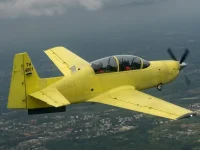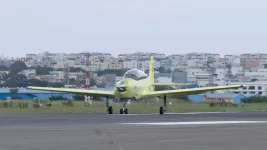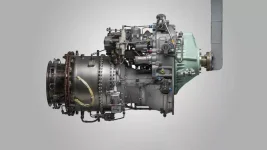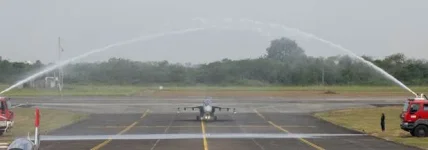- Views: 2K
- Replies: 7
The Indian Air Force's plan to strengthen its pilot training capabilities is facing significant setbacks due to major delays in the indigenous Hindustan Turbo Trainer-40 (HTT-40) programme.
The project, managed by Hindustan Aeronautics Limited (HAL), has been brought to a standstill by the failure of a British supplier to deliver critical ejection seats, jeopardizing the timeline for this vital 'Make in India' defence initiative.
The HTT-40 is a modern turboprop aircraft developed by HAL as a foundational trainer for new pilots. It is intended to replace an aging fleet of Swiss-made Pilatus PC-7 Mark II aircraft.
The programme is a cornerstone of India's 'Atmanirbhar Bharat' policy for achieving self-reliance in defence manufacturing.
However, with the original delivery target of late 2025 now looking unachievable, the IAF remains dependent on its existing 75 Pilatus trainers, a number considered insufficient to meet the training demands for its planned expansion to 42 combat squadrons.
At the centre of the current crisis is the failure to procure ejection seats from Martin-Baker, a renowned British company. The contract was for the supply of 140 'zero-zero' ejection seats for the 70 aircraft planned for the first batch.
This type of seat is a crucial safety system that allows a pilot to eject safely even when the aircraft is at zero altitude and zero speed, such as on a runway. According to reports, persistent supply chain problems have stalled the delivery of these systems, with no immediate solution in sight.
Compounding the issue are parallel delays from other international suppliers. The American firm Honeywell has reportedly faced difficulties in supplying the required TPE331-12B turboprop engines for the aircraft.
These disruptions have forced engineers to use older, non-production standard engines for some ground tests, further complicating the development and production schedule.
As a potential temporary fix, officials are considering repurposing a dozen spare ejection seats from HAL's shelved HJT-36 Sitara Intermediate Jet Trainer (IJT) project. These components were left unused after the IJT programme was shut down for failing to meet performance standards.
While these seats could theoretically equip the first six HTT-40 aircraft, significant technical and certification hurdles regarding their compatibility and airworthiness must be addressed before they can be integrated.
These protracted delays are creating a serious bottleneck in the IAF’s training pipeline.
With a limited number of available trainer aircraft, new pilots face longer waiting periods for essential flying hours. This backlog could ultimately delay their progression to advanced fighter jets like the indigenous Tejas Mk1A.
The uncertainty has also prompted HAL to begin exploring concepts for a completely "new plane," tentatively scheduled for 2028, to fill the training gap.
Although two HTT-40 prototypes have successfully completed over 900 hours of flight testing over nine years, the programme's transition to series production remains stalled.
The much-anticipated maiden flight of the first production-ready aircraft, originally planned for September, has been missed.
HAL continues to urge its suppliers to expedite deliveries, but without a clear timeline for the arrival of the crucial ejection seats, the future of this critical Indian defence programme remains uncertain.





